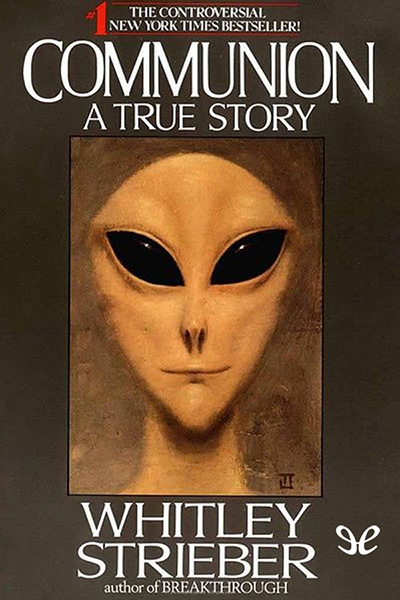oleebook.com
Cat Magic de Whitley Strieber
de Whitley Strieber - Gûˋnero: English
Sinopsis
Some people in Maywell, New Jersey, commute to New York. Some are working on a lab project that will change the world ô if it is allowed to succeed.
And some people are witches.
Amanda Walker is not a witch ô yet. She's an artist, looking for work ô unaware that someone has a desperate need for her, a dark plan that may require Amanda to enter death itself.
If she is allowed to live long enough to make the choice.
Amanda's tale is far stranger than she knows. It is ancient beyond memory. In times of great change it must be relived, in all its fear and hope, its wisdom and its passion.
One of those times is now.
Descargar
Descargar Cat Magic ePub GratisLibros Recomendados - Relacionados
ReseûÝas Varias sobre este libro
Poul Anderson (1926ô2001) won multiple awards and much acclaim during his career. His story ôEutopiaô in the Dangerous Vision anthology (1967) remains one of my favorites for the way the plot hinges on the final word. This is typical of Anderson. His plots were genius.
wise, all nine of the stories in the collection The Best of Poul Anderson are impeccably told ô and yet this book left me troubled. A quick summary of the stories might offer a clue about why.
ôThe Longest Voyageô (1960): Explorers (men) rather 1700s sailors on Earth are circumnavigating their planet, and they find a high-tech artifact. Won the 1961 Hugo Award for short story.
ôThe Barbarianô (1956): A spoof of Conan the Barbarian.
ôThe Last of the Deliverersô (1958): A man arrives in a future Ohio town and debates politics in a satire of the Cold War.
ôMy Object All Sublimeô (1961): A couple of men meet over time travel and crime ô to say more would be a spoiler, and thereôs a nice twist.
ôSam Hallô (1953): A man fights an oppressive government. Nominated for a Prometheus Award and Retro Hugo Award.
ôKyrieô (1968): A woman falls in love with a doomed alien. Nominated for a Nebula Award.
ôThe Fatal Fulfillmentô (1970): A man falls afoul of a repressive system of psychological control.
ôHiding Placeô (1961): A space opera story involving Nicholas Van Rijn, one of Andersonôs recurring characters.
ôThe Sky Peopleô (1959): In the future on a resource-depleted Earth, a savage attack falls on a peaceful city, and a brave captain (male) saves it.
You may have noticed a certain dearth of women in significant roles. And consider the description of the only woman who is a protagonist: Her shipôs captain regards her as ôgaucheô and ôinhibited,ô and he tries to suppress his ôdistasteô ô ôbut her looks! Scrawny, big-footed, big-nosed, pop eyes and stringy, dust-colored hair....ô
When women are introduced in these stories, they often lead with their breasts and sex appeal: ôher build left no doubt [of her mammalian life form],ô ôthe rich black dress caressed a figure as good as any in the world,ô ôblond, big-eyed, and thoroughly three-dimensional,ô ôher gown was of shimmerite and shameless in cut,ô ôyoung and comely, and you didnôt often see that much exposed female flesh anymore,ô ôa stunning blonde,ô ôshe was nice-looking ... and he thought he could get her into bed.ô
In ôThe Hiding Place,ô Nicholas Van Rijn has brought a female paid sex companion on his trip whom he keeps underclad and verbally and physically mistreats. In fairness, heôs an ass to everyone, but her abuse has a rapey edge ô and heôs the hero of the story. In ôThe Sky People,ô the rescuing fleet has bare-chested woman aboard who ôcomfortô the men as their only means to join a exciting mission of discovery. Couldnôt they be full members of the crew and share in the adventure without prostituting themselves?
I was born in 1955. I grew up in a time when girls could only wear skirts to school ô among many other arbitrary, humiliating, harmful rules, such as no competitive sports; women could legally be paid less than men for the same work if they could even get the same work; reproductive rights didnôt exist. As a headstrong girl, I chafed at the restrictions, stereotypes, and peremptory limited horizons. Reading these stories is a return to the nightmare time when I was legally a second-class citizen.
Poul Anderson canôt be held too much at fault for not seeing that, though. Second-wave feminism didnôt begin in the United States until after most of these stories were published, and progress toward equality was (and still is) slow. Other authors of that time, in and out of science fiction, were equally blind to what we can easily see now.
My question is this: What are we blind to now? What in todayôs fiction will future readers point at and wonder how we could have missed something so utterly glaring?
Weôre all idiots, we just donôt know what kind of idiot. Reading this book with its painful flaws ought to keep us humble.
...
(An essay with a related theme is at Tor.com: The Sad But Inevitable Trend Toward Forgotten SF.)8 s MikeAuthorô 5 books7
These stories were selected by Anderson himself, though he admits that some choices were suggested to him by critics. He tried to choose stories and novelas that have not been extensively reprinted in other anthologies, which is nice, and he also hoped that they portray his full range as a stylist and a range of modes of science fiction. I think he succeeds. We have hard science fiction, visionary fantasies, and near-future dystopias.
The Longest Voyage -- This is about as close as you can get to a archetypal Poul Anderson story, as it combines a lot of his recurring themes (high tech vs. ôprimitivesô, the triumph of the human spirit, the collapse of civilization, conflicts without clear ôgood guysô and ôbad guysô, and more).
The Barbarian -- Still pretty funny, this is a spoof of the pulp sword-and-sorcery genre that takes aim at RE Howardôs Conan and his many imitations.
The Last of the Deliverers -- Although dated as satire of the Cold War, this story is pretty detailed sketch of a scenario Poul Anderson often pondered: a development of civilization that rejects dependence on technology, and values simplicity and communitarianism over convenience and profit.
My Object All Sublime -- Anderson loved twist endings as much as anyone, and here he uses a time-travel tale to deliver an unexpected twist. Time travel always lends itself to twist endings, ut Anderson chooses to avoid the obvious paradox or branching timelines angles and instead makes it something else entirely.
Sam Hall -- The narrator works for an oppressive government and uses his privileged access to the information system to ignite a revolution. It has aged surprisingly well, considering that it is a a story about computer hacking written in the 1950s.
Kyrie -- A very odd, but compelling, story about human-alien interactions, space-time, and the nature of love. For someone who totally disavows any literary pretense, Anderson writes literary science fiction as well as anyone.
The Fatal Fulfillment -- A fun story that the reader can puzzle out before the ôtwistô ending arrives.
Hiding Place -- A clever science fiction tale featuring one of Andersonôs recurring characters, Nicholas Van Rijn, and a sort of mystery.
The Sky People -- Yet another of Andersonôs strange visions of a future society -- or in this case three societies that have evolved in a wasted, resource-depleted Earth some time after the fall of our current civilization. Ambassadors from a relatively advanced culture descended from the Maori visit a feudal civilization in Mexico just as the Shy People -- ruthless pirates -- attack their city. Anderson depicts savagery that must have been fairly shocking the 1950s when this was written, but the twist ending is somewhat shocking by any standard.
science-fiction1 Norman Felchle72 1 follower
Anderson has an interesting viewpoint...
Not easily placed in one political or philosophical box or another.
Sometimes itôs disorienting...trying to figure out where he comes down on issues. Do I agree with him? Do I disagree with him?
In the end, I kind of it. Itôs not a cozy easy read that reinforces my complete world view...neither does it necessarily oppose it. He just has his own way of thinking about things...and he tells engaging and interesting stories.
Pretty cool. 1 Paul Knighton49 20
A wonderfully diverse range of 1950-1960s sci-fi showing Poul Anderson's sheer versatility, craft and humour. It's also enjoyable to see all the myriad ways that authors of that time foresaw "the future".
A varied collection with long and short pieces, each enjoyable in different ways, right up to the final story.1 Chris Aldridge519 9
The 4th story in this collection "My Object All Sublime" is the Mindwebs audiobook 34.
This Mindwebs source claims to be from the June 1961 issue of Galaxy magazine.
A challenging view of the morality of the future. A time travel story but different. I certainly enjoyed it but was left with more questions at the end. Stupidly I did not see the twist in the tail coming, (which is almost always good). Really wish he had explained more, although I suppose that was the point.
I ended up thinking he was somehow preaching to me, perhaps an ideology, or worse, a theistic viewpoint, although he was too smart to actually commit to clarifying his views. I've got a niggling suspicion his books have made me react this way before. Although I mostly despise religion - I have no problem with blatantly religious parables such as C S Lewis's Narnia series (which as a child I guzzled down as fast as possible). I guess it's just me but my uneasy feeling /queasy detectors started to beep.
NB. Mindwebs audiobook 34 states that this book is by Poul Anderson - rather than a version by Robert Heinlein which was more easily located on Goodreads .in-a-collection mindwebs partly-read Kevin Leung270 15
Definitely a mixed bag. Some were clever. Some felt dated. Since this collection was published in the 70s, there were some clear echoes of the Cold War in the stories that maybe donôt feel so relevant anymore.
I would recommend choosing amongst Andersonôs work rather than barreling through this (admittedly short) volume. Old Man Aries575 33
Uomini nello spazio alla ricerca di pianeti vergini da collezionare. E, perchûˋ no, da sfruttare ai buoni fini del commercio interstellare. Uomini come Nicholas van Rijn, per esempio, di cui potrete leggere la gustosissima avventura intitolata Nascondiglio (Hiding Place), alle prese con un mucchio di extraterrestri fifoni. Ma in quest'antologia se ne vedono di tutti i colori, e quindi non dovete meravigliarvi se dallo spazio profondo si passa alle incognite dei "mondi alternativi" nel bellissimo romanzo breve Il sogno e la follia (The Fatal Fulfillment), dove si affronta il tema della pazzia e della libertû individuale. Ma ad Anderson non dispiacciono le storie di puro divertimento: e quindi eccovi Il barbaro (The Barbarian), che piacerû ai patiti di Conan, e in genere agli amanti della fantasy, condita qui da un pizzico d'ironia. Nemmeno qui poteva mancare l'estrapolazione sociologica, presente in Gli ultimi eroi (The Last of the Deliverers) e in Sam Hall (Sam Hall), ritratti diversamente agghiaccianti del nostro futuro. Dal viaggio nel tempo (crudelissimo!) di Il mio scopo sublime (My Object All Sublime) si passa alle meraviglie esotiche di Il viaggio piû¿ lungo (The Longest Voyage), alla pirateria aerea de Il popolo del cielo (The Sky People); per chiudere, in poetica suggestione, sul Kyrie (Kyrie) di una creatura aliena che si sacrifica alla razza umana. Indice Il viaggio piû¿ lungoô
The Longest Voyage 1960 Il barbaroô
The Barbarian 1956 Gli ultimi eroiô
The Last of the Deliverers 1958 Il mio scopo sublimeô
My Object All Sublime 1961 Sam Hallô
Sam Hall 1953 Kyrieô
Kyrie 1968 Il sogno e la folliaô
The Fatal Fulfillment 1970 Il nascondiglio Hiding Place 1961ô
Il popolo del cielo The Sky People 1959 Will35 1 follower
Sam Hall and My Object All Sublime are excellent.
Kyrie is very good.
The rest are average at best. Nancy90 1 follower
Short story collection. A mixed bag - some good, and some fairly awful. Norman Howe1,974 4
Science-Fiction Jon1,200 6
Interesting old-school stories. Hold up better than some others I've read. Jim1,225 75
Autor del comentario:
=================================
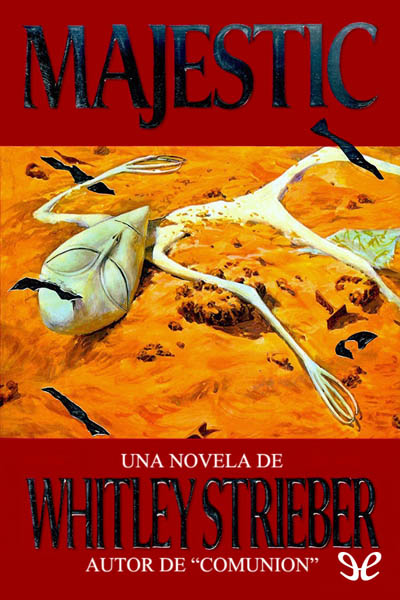

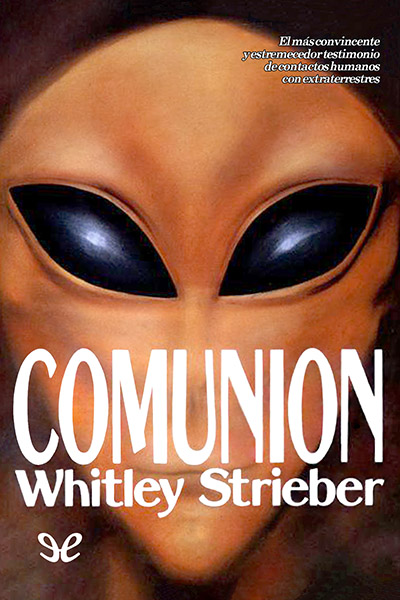
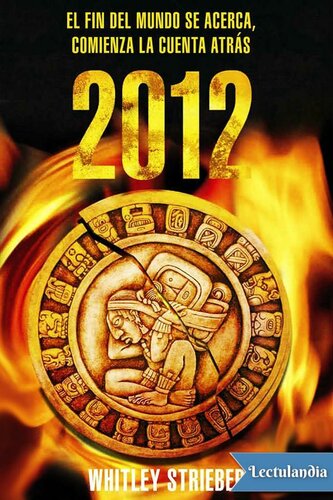
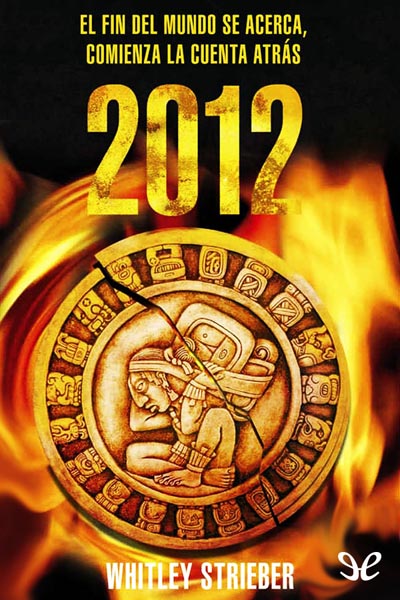

![descargar libro The Wolfen [ed.: Limited Ebook]](imglibro/whitley-strieber-the-wolfen-ed-limited-ebook.jpg)
